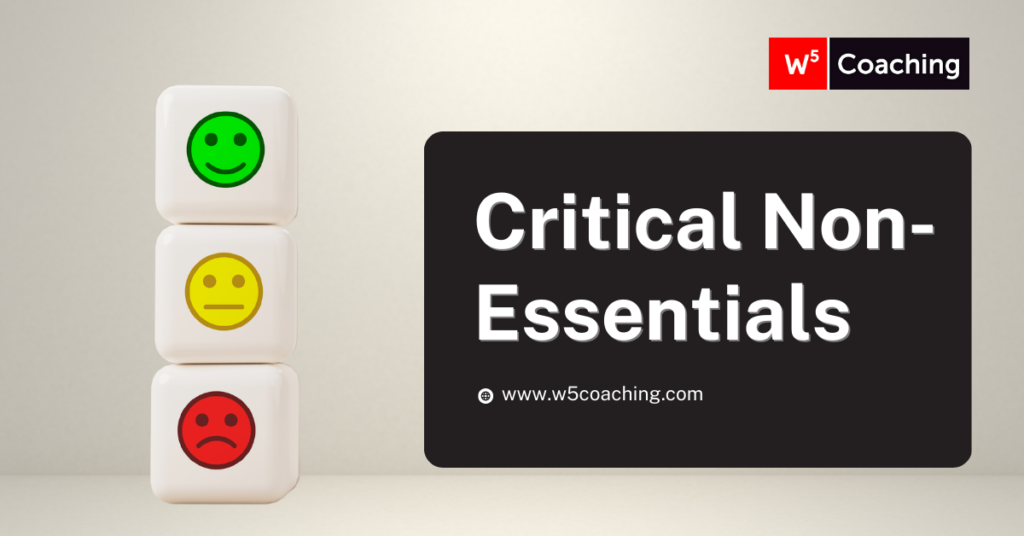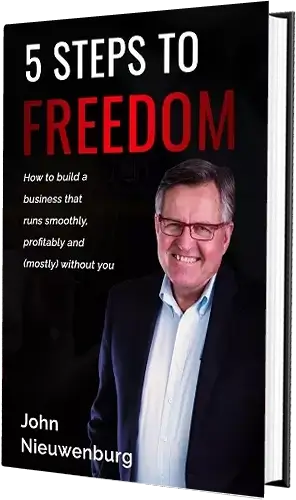Want to grow your business? Pay attention to the critical non-essentials.

Unless you are a fellow expert, you can’t accurately judge an expert’s skills and expertise.
It’s like the old joke:
Q: What do you call the person who graduated at the very bottom of their class in medical school?
A: Doctor.
How skilled is your accountant? Your doctor or lawyer? Your favourite technical guru?
Unless you’re also an expert in that area, you can’t judge their skills.
So, instead, you assume that “how they do one thing is how they do everything” – and you judge their competence based on other attributes of their business.
These are what author Paddy Lund calls the “critical non-essentials.”
Critical non-essentials include things like the cleanliness of your shop or office, the degree to which you appear to be organized, and the friendliness of your front-line staff.
I was reminded of the importance of these during my recent experience trying to find a car repair shop.
I’m currently on an extended working vacation in Arizona, so going to my usual place in Vancouver wasn’t an option.
Here’s what I learned:
Customer service matters

Would you trust this place with your car?
I was shocked by front-line “service” people who were unfriendly or uninterested – and those who promised to call me back but never did.
It’s not that hard to provide good customer service:
- Extend a friendly greeting
- Be empathetic when they call
- Get back to people when you say you will
Show that you care and are willing to make an effort to solve their problems.
Impressions matter
One of the places I visited looked more like a junkyard than a car repair place.
Even though their Yelp reviews were good, I didn’t feel comfortable leaving my car there.
They might BE great – but they don’t LOOK great.
They simply didn’t look trustworthy.
The connection between critical non-essentials and your customers’ perception of your expertise
Technically, customer service and “how the lot looks” are non-essential to car repair.
The most important thing is that the mechanic who works on your car can do the job.
And yet, if you do a poor job of customer service and have a lot that looks terrible, people either won’t come in – or they may question your mechanical abilities based on these outside factors.
You might employ the best mechanics in the world – yet people won’t recognize you as such.
The good news is that the opposite is true as well.
You can use critical non-essentials to establish your expertise.
These are some of the examples that Paddy Lund used in his dental office. Notice how the easily-judged critical non-essential pairs with the less-easy-to-judge expert service.
- Employed very friendly and competent front desk staff to make patients feel welcomed and cared for. (If these people are good at their job, then the dentist must be good at his!)
- Put in beautiful, landscaped gardens at the front entrance. (If they do such a nice job with the gardens, surely, they’ll do an equally great job with my teeth.)
- Served tea in spotless china cups. (If they have high quality teacups and keep them this clean, they must also have high quality dental equipment and keep that clean as well.)
You can go beyond the basics and use critical non-essentials to differentiate yourself and get people talking.
In Lund’s book, he shares an example of installing TVs for patients to watch while getting their dental work done.
At the time, this wasn’t a common practice.
He recognized that this was good for marketing when he overheard one of his patients telling her friend about how her dentist had TVs on the CEILING so that patients could watch!
How are the critical non-essentials in your business?
Put yourself in the shoes of YOUR clients or customers and audit your own business:
- What do people see when they pull into the lot or walk through the door?
- How do you answer the phone?
- How clean are your washrooms?
- How do you (and your background) look on your video calls?
- If you send out service personnel, what impression to they make?
- How are the drivers of your branded vehicles?
- Is there anything special about the way you conduct your business that gets people talking?
And most importantly, now that you know how critical these non-essentials are: what could you do differently?
Would you like some help creating a better business? Book 15 minutes on my calendar to discuss coaching: Book a Call with John

Build a Self-Managing Company
How to build a business that runs smoothly, profitably, and (mostly) without you.
Feeling stressed out and overwhelmed with a business that is taking all your time - and not giving you enough in return?
Are you finding it challenging to hire the right team (and get them to do the right things)?
I wrote this little guide for you!
Enter your details below to receive your free copy!
